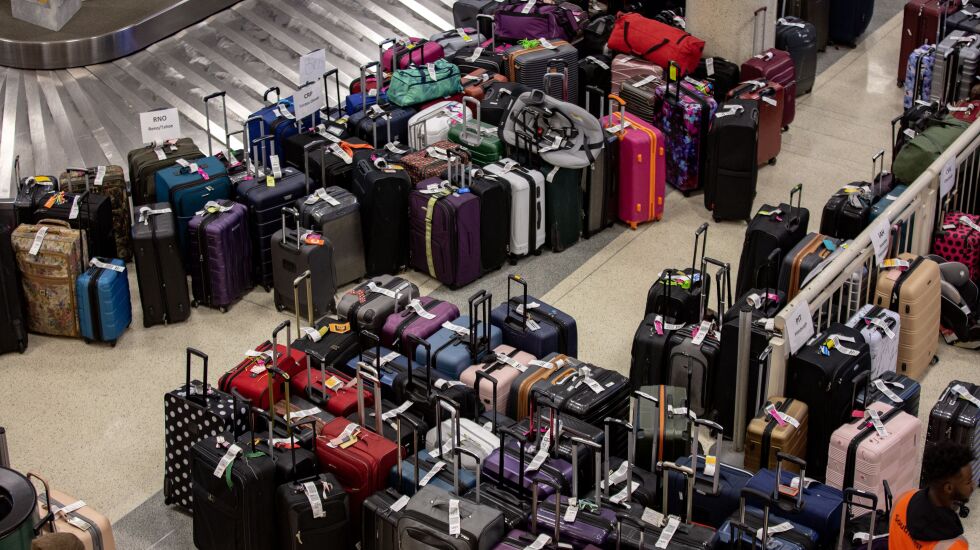
“Meltdown.”
That’s how U.S. Department of Transportation Secretary Pete Buttigieg described the fiasco that continues to envelop Southwest Airlines, days after a winter storm disrupted travel in much of the country and even after other airlines have gotten back on track.
Southwest is the biggest U.S. carrier and the largest operating out of Midway Airport, and its customers here in Chicago have been hit especially hard, with passengers stuck for hours if not days and often without their luggage. While the sea of suitcases in Midway’s baggage claim area has been subsiding, customer ire remains high.
And with good reason. On Tuesday, most other carriers had canceled fewer than 100 flights nationwide, while Southwest slashed nearly 2,700, according to the flight tracking website FlightAware. On Wednesday, that number was still at 2,509 for Southwest — and represented nearly all of the canceled flights reported by the website. Midway had the second-greatest number of cancellations in the U.S., second only to Denver, another major Southwest hub.
Buttigieg rightly called out Southwest for the “unacceptable conditions” its passengers and employees have faced this past week. In an interview Tuesday night on the PBS NewsHour, he said one problem is the Dallas-based carrier’s outdated systems, which couldn’t track the location of many of its crew as the meltdown unfolded. Pilots have taken to social media to share their frustration with an infrastructure problem some say has been years in the making.
Southwest’s staffing and scheduling system is more manual than the one used by other airlines, which use a quicker, automated method, according to a former airline executive interviewed by Sun-Times reporter Mary Norkol. That needs to be fixed, and fast.
Another challenge: Other major carriers such as Delta Air Lines, American and United routinely swap tickets with other airlines, but Southwest does not, leaving travelers at its mercy.
That’s another change Southwest should make — pronto — if it wants to keep its reputation for putting customers first; get customers booked on other airlines rather than keeping them stranded far from home.
One more step the embattled airline must take is paying for hotel stays, local transportation expenses and meals, not to mention issuing prompt refunds for canceled flights. “They’ve pledged they’ll do that,” Buttigieg told the NewsHour. “I’ll be watching very closely to make sure that they follow through.” So will we.
Buttigieg noted that Southwest and the other major airlines “made commitments in writing” last summer about how to take care of customers in situations like this one. “We’re going to be holding them accountable to those commitments and expect them to go above and beyond the letter of the law.”
The federal agency will be investigating what went wrong. In a tweet Monday, the DOT said it will examine the “unacceptable rate of cancellations and delays & reports of lack of prompt customer service. The Department will examine whether cancellations were controllable and if Southwest is complying with its customer service plan.”
Transportation officials should share what they learn with the flying public, and Southwest executives need to follow through on their end, too. CEO Bob Jordan promised as much in a video statement he made earlier this week: “Clearly, we need to double down on our already existing plans to upgrade systems for these extreme circumstances, so that we never again face what’s happening right now.”
In the meantime, Southwest customers should brace for a few more days of turbulence, as the airline is not operating at even half of its normal capacity. Jordan said he’s optimistic the carrier will be back to normal operations before next week.
“We have some real work to do to make this right,” he said. “We always take care of our customers. And we will lean in and go above and beyond, as they would expect us to.”
That’s what customers deserve and should expect.
The Sun-Times welcomes letters to the editor and op-eds. See our guidelines.







